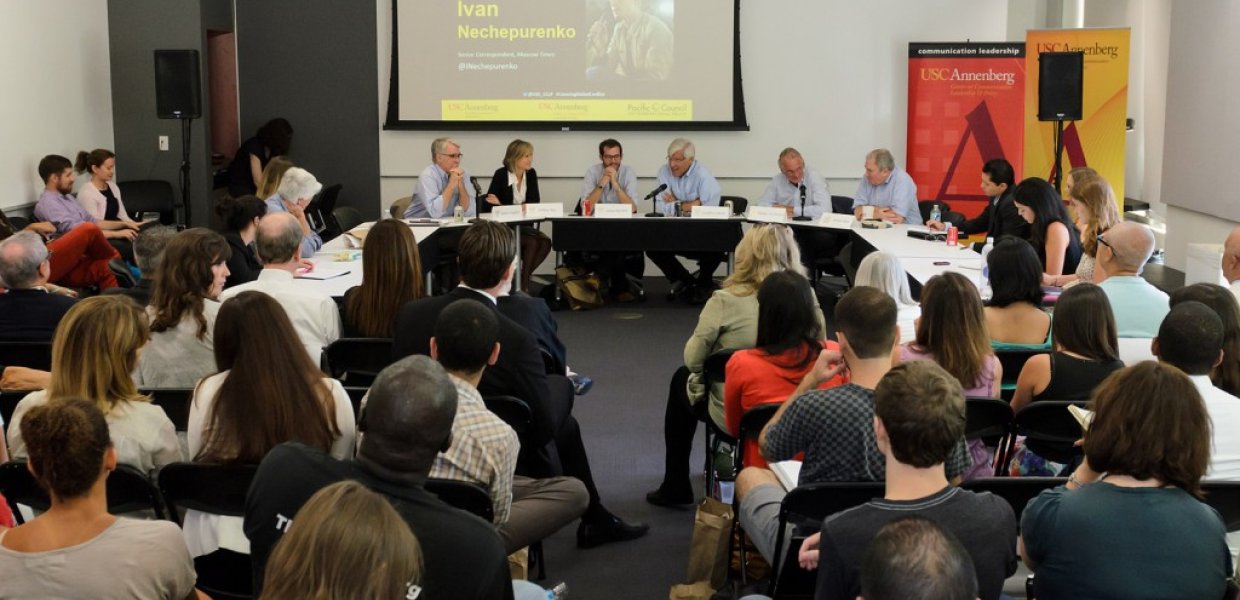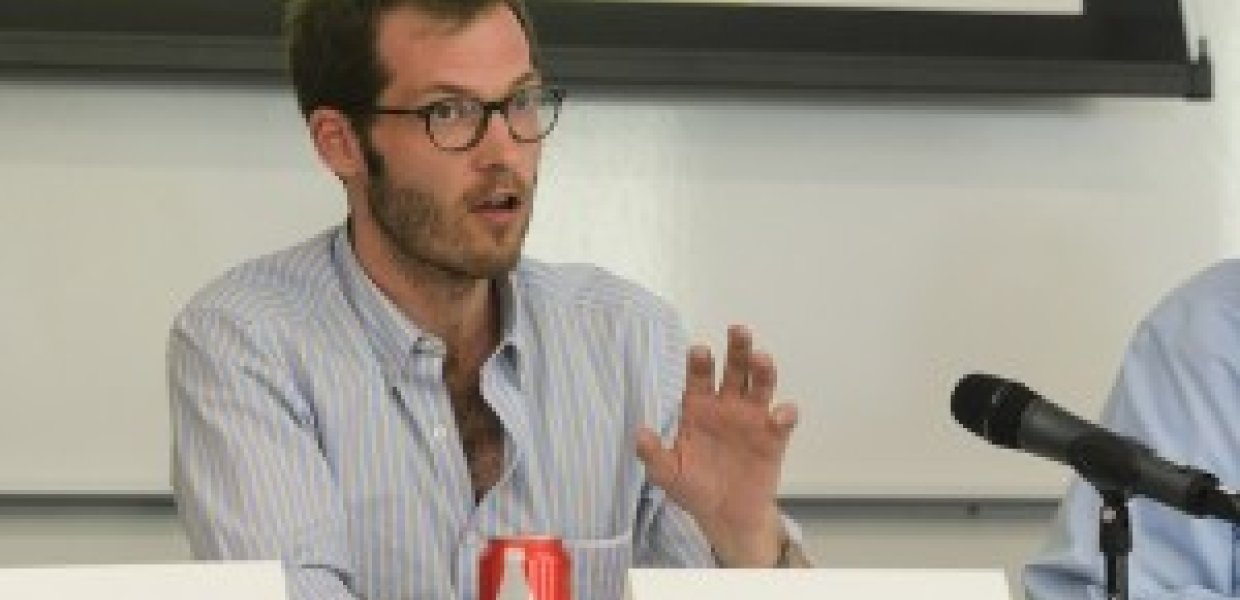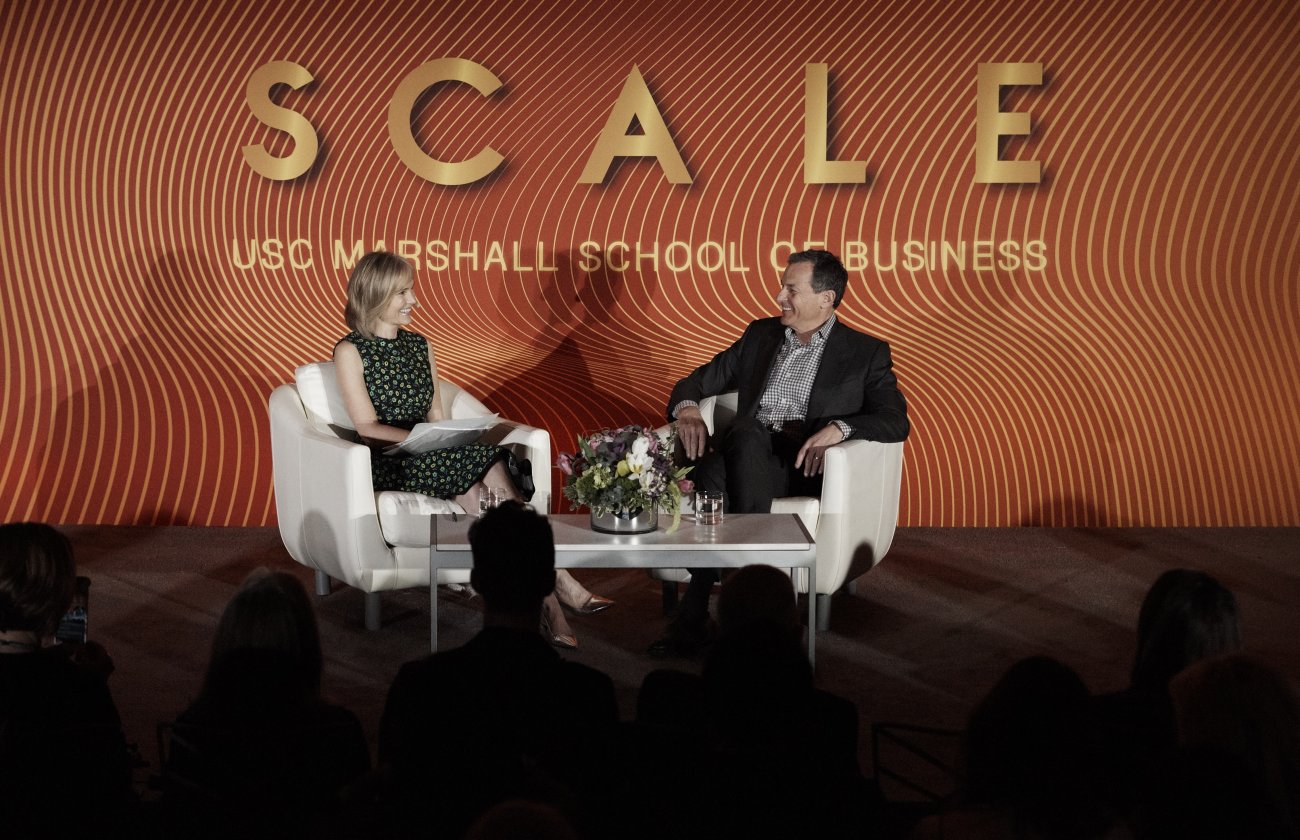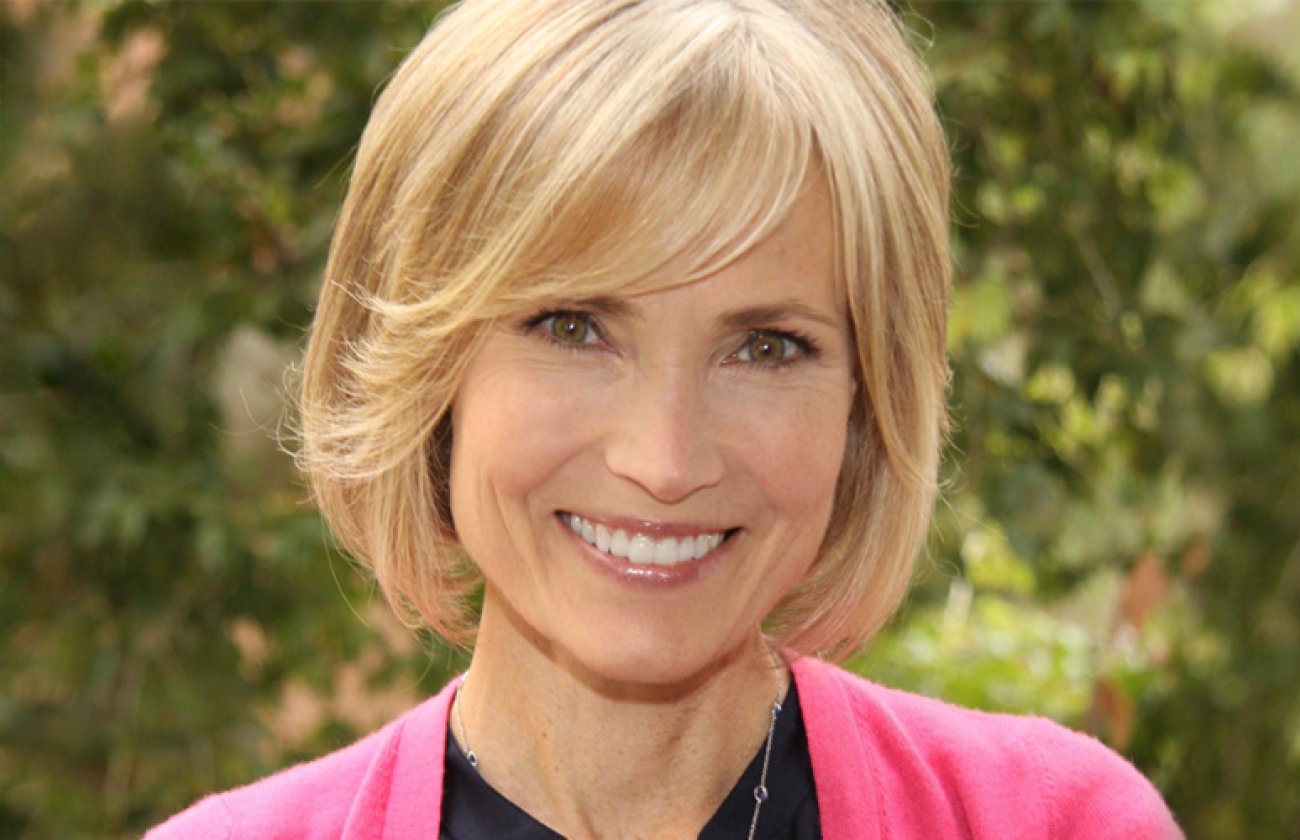 Panelists discuss “Covering Global Conflict: Ukraine & Ferguson,” in the first of a series of noontime conversations.
Panelists discuss “Covering Global Conflict: Ukraine & Ferguson,” in the first of a series of noontime conversations.
On Tuesday, USC Annenberg held the first in a series of noontime conversations in the new Wallis Annenberg Hall. More than one hundred students attended and listened to a panel made up of USC staff and visiting journalists as they examined how multiple international medias cover global conflicts. The Center on Communications Leadership & Policy , School of Journalism, and the Pacific Council on International Policy helped organize the event “Covering Global Conflict: Ukraine & Ferguson,” with special attention to the Ukrainian crisis and how Russian and American media cover it. Willow Bay, director of the school of journalism, said she hopes that the conversations will spark greater interest in global coverage to the prospective journalists in the room. “I expect that this building will become a hub for more of these conversations of news media, domestically and internationally,” Bay said. Senior correspondent of the Moscow Times, Ivan Nechepurenko, joined the panel from Moscow via Skype to share his insights. “Russia has a very strong television media that only gives one side of the story,” Nechepurenko said. “My belief is that the situation is very similar in the western world. They give a very singular interpretation of what’s happening.” Panelist Florian von Heintze, deputy editor-in-chief of German newspaper BILD, echoed Nechepurenko by stating that Russian media has strictly followed the official Russian position by arguing that they are protecting Russian minorities in Ukraine, while American media has emphasized Vladimir Putin unjustness and that he must be stopped. One-sided stories can be especially problematic as it leaves room for governments to generate propaganda and misinform readers, explained Julian Reicheit, editor-in-chief of BILD. “The best protection against propaganda, for me is to always have your own people on the road because it’s the best defense over believing government propaganda,” Reicheit said.
 Julian Reicheit, editor-in-chief of Bild.de, discusses how to overcome propaganda during "Covering Global Conflict."
Julian Reicheit, editor-in-chief of Bild.de, discusses how to overcome propaganda during "Covering Global Conflict."
When Reicheit began covering wars and conflict zones in Iraq and Afghanistan years ago, Twitter didn’t exist the way it does today. Now readers are confronted with a “constant real-time influx of information” so journalists tend to jump on everything, even if its only 140 characters on Twitter. “That makes it very easy for governments to create something like propaganda as long as they have an understanding of what an audience wants to hear,” Reicheit said. Governments, however, aren’t the only entities using propaganda. Rebels and terrorist groups, like the Islamic State of Iraq and Syria, have favored it. These groups have additionally realized that journalists are their biggest threat because they can reveal confidential information about their organization. Journalists have almost become favorite targets of terrorists, Reichei said, which makes it very difficult to check news in their country. In fact, by threatening the lives of journalists, terrorists groups like ISIS have essentially monopolized the coverage of their own organization. “Every time they run footage, may it be video or pictures from ISIS, its shot by ISIS,” Reicheit said. “We have to take it off of Twitter because we have no access. It always looks glorified and always looks the way they want it to look, and the truth is we have no way around it.” As barbaric as the images and videos appear, they are not Neanderthal, he continued. Even in an environment where they are gruesomely beheading people, ISIS knows that in order to attract an international audience they need clean audio in their footage. Jessica Moulite, an M.S. journalism student, attended the event and admired the honesty of the guest speakers, especially regarding the role of journalists in telling stories. “As an aspiring journalist, I now have to keep in mind which agendas I may consciously or unconsciously use for my reporting, now more than ever,” Moulite said. The panel agreed that in order for readers to be fully informed, they must be well versed in news coverage from multiple organizations, domestic and abroad. Michael Parks, professor and former director of the school of journalism, added that its important for journalists to be up-to-date on recent past histories when it comes to big news stories. “There are different narratives in every conflict,” Parks said. “So whose narrative is right? Is it the job of the journalist to decide or explain?”









